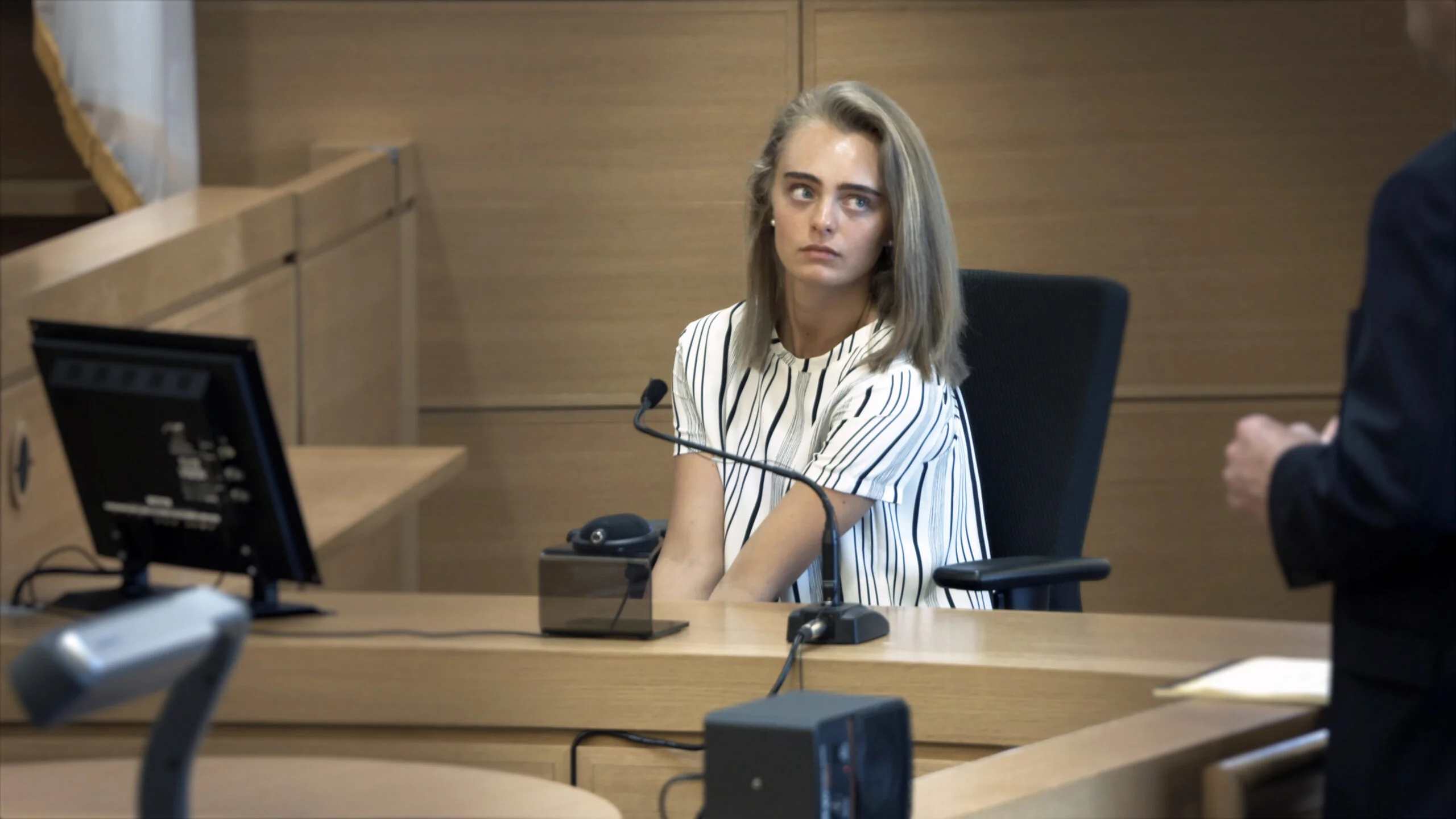Introduction
The name Michelle Carter may forever be associated with one of the most controversial legal battles of recent times. Her involvement in the tragic suicide of her then-boyfriend, Conrad Roy III, catapulted her to the forefront of public scrutiny. In the years following the case, fundraising initiatives linked to Carter have generated mixed responses, opening up a debate about ethics, legality, and public perception. This article explores how the “Michelle Carter Fundraiser” became a topic of controversy and the myriad complexities surrounding it.
Background of Michelle Carter and the Case
Who Is Michelle Carter?
Michelle Carter, born on August 11, 1996, grew up in Plainville, Massachusetts. She was considered a typical teenager but struggled with mental health issues, including depression and an eating disorder. Her relationship with Conrad Roy III, who also suffered from depression, would lead to a tragic series of events.
The Relationship with Conrad Roy III
Carter and Roy met in 2012 while on vacation in Florida with their families. Their relationship, largely maintained through text messages, appeared supportive but revealed troubling undertones. Both teenagers were struggling with mental health challenges, and their correspondence reflected this deeply.
The Tragic Event: Conrad Roy’s Suicide
On July 13, 2014, Conrad Roy III was found dead in his truck in a Kmart parking lot due to carbon monoxide poisoning. Investigations into his death uncovered text messages and conversations with Carter, where she had encouraged him to take his own life.
The Incriminating Texts
The messages between Roy and Carter revealed Carter’s repeated encouragement for Roy to commit suicide. Messages like “You just have to do it” and “It’s painless and quick” were brought forward as evidence that she had pressured Roy into ending his life.
The Legal Journey: Conviction and Appeals
Initial Charges and Trial
In February 2015, Michelle Carter was charged with involuntary manslaughter. Her trial began in June 2017, and she was found guilty. Judge Lawrence Moniz determined that Carter’s texts to Roy, urging him to get back into the truck, constituted wanton and reckless conduct.
Sentencing
Carter was sentenced to 15 months in prison and five years of probation. She remained free pending her appeals, which she ultimately lost. In February 2019, she began serving her sentence at the Bristol County House of Correction. You can also read How To Plan Trip To India From USA Discover The Best Of India A Region-By-Region Travel Guide
The Appeals Process
Her legal team argued that Carter’s actions were protected under the First Amendment’s free speech clause. However, the Massachusetts Supreme Judicial Court upheld her conviction in 2019, and the U.S. Supreme Court declined to review the case.
Early Release
Due to good behavior, Carter was released from prison in January 2020 after serving 11 months of her 15-month sentence.
The Michelle Carter Fundraiser: An Overview
Purpose and Objectives
A fundraiser linked to Michelle Carter emerged, raising questions about its intent and ethical implications. Initially presented as a means to support Carter’s legal defense, the fundraiser also aimed to highlight mental health issues and challenges within the legal system.
Fundraising Platforms
The fundraiser primarily operated through crowdfunding platforms like GoFundMe, attracting mixed reactions. It highlighted a growing trend in leveraging public support for legal battles, with some supporters rallying behind Carter’s need for a fair defense.
Key Supporters and Promoters
Several people involved in Carter’s personal and legal circles supported the fundraiser. They argued that Carter deserved a chance to tell her side of the story and needed financial support to do so.
Public Reaction and Media Response
Media Coverage
Media outlets were quick to pick up on the fundraiser, with some taking a sympathetic stance towards Carter. Documentaries, podcasts, and news reports often framed Carter as a troubled individual who became the target of a polarized legal system.
Public Opinion
Public opinion on the fundraiser was divided. While some believed Carter was unfairly demonized, others argued that raising money for her was akin to profiting off a tragedy. Victim advocates, in particular, criticized the fundraiser for lacking sensitivity towards the Roy family.
Social Media Impact
Social media played a significant role in shaping public perception. Hashtags like #FreeMichelle and #JusticeForConrad reflected the polarized views surrounding the case.
Ethical Concerns and Debate Surrounding the Fundraiser
Profiting from Tragedy
Critics argued that any fundraising initiative associated with Michelle Carter was unethical due to the nature of her conviction. They pointed out that such initiatives indirectly capitalize on Conrad Roy’s death.
Exploiting Mental Health Issues
Some supporters contended that the fundraiser was crucial in highlighting Carter’s mental health struggles. However, others believed that leveraging mental health as a defense was an attempt to deflect blame and avoid accountability.
Moral Responsibility vs. Legal Rights
The debate often centered around the concept of moral responsibility. Should individuals who are legally convicted of a crime have the right to fundraise for their defense or post-prison lives? This question lies at the heart of the Michelle Carter Fundraiser controversy.
Legal Implications of the Fundraiser
Legal Precedents
Fundraising for legal battles is not uncommon, but cases like Michelle Carter’s blur ethical lines. The U.S. legal system generally allows defendants to raise funds for their defense, provided no criminal proceeds are involved.
Regulations and Policies
Crowdfunding platforms have guidelines to prevent the misuse of funds. However, enforcement remains inconsistent. GoFundMe, for instance, prohibits campaigns that violate any laws but often relies on user reporting to take action.
Potential for Exploitation
The Michelle Carter Fundraiser demonstrated how legal gray areas could be exploited. Without clear guidelines, it’s possible for individuals convicted of serious crimes to indirectly benefit from their notoriety.
Similar Cases: Fundraising in High-Profile Legal Battles
Casey Anthony
Casey Anthony, accused of killing her daughter, also saw fundraising attempts to cover her legal expenses. While her campaign did not gain significant traction, it still highlighted a public willingness to support controversial figures.
George Zimmerman
George Zimmerman, acquitted in the shooting of Trayvon Martin, raised funds through similar channels to cover legal costs. His fundraiser attracted heavy criticism and debates about the ethics of such initiatives.
Anna Delvey
Anna Delvey, a con artist who posed as a wealthy socialite, launched a GoFundMe campaign post-conviction to cover her legal fees. The campaign was shut down after backlash.
Legal and Ethical Implications
These cases share common threads: high-profile figures leveraging public platforms to raise funds despite controversial or criminal backgrounds. They underscore the need for a more robust legal framework around such fundraising initiatives.
Mental Health Awareness and the Role of Fundraising
The Intersection of Mental Health and Crime
The Michelle Carter case opened up conversations about the role of mental health in criminal behavior. Both Carter and Roy struggled with mental health issues, which played a significant role in the tragic outcome.
The Fundraiser as an Awareness Tool
Supporters of the Michelle Carter Fundraiser argued that it helped raise awareness about mental health issues, particularly among teenagers. They believed that providing Carter with legal assistance could also bring her closer to rehabilitation.
Funding Mental Health Initiatives
Some argued that instead of funding Carter’s legal defense directly, the fundraiser could have been redirected towards mental health charities or initiatives. This could help prevent future tragedies and reduce stigma around mental health.
Impact on Victim’s Family and Legal Precedent
The Roy Family’s Response
Conrad Roy’s family has been vocal about their disapproval of Carter and any initiatives associated with her. They argued that the fundraiser disrespected Conrad’s memory and trivialized his death.
Legal Precedent and Victim Advocacy
The conviction of Michelle Carter set a legal precedent regarding encouragement of suicide. The legal concept of “virtual presence” was pivotal in her case. Critics of the fundraiser argued that supporting Carter could undermine this precedent and victim advocacy efforts.
The Balance Between Fair Trials and Victim Rights
The controversy surrounding the Michelle Carter Fundraiser highlights the delicate balance between ensuring fair trials and respecting victims’ rights. Critics believe that high-profile cases need clearer guidelines to prevent revictimization.
Conclusion
The Michelle Carter Fundraiser remains a polarizing topic due to its ethical, legal, and societal implications. While some see it as a means of seeking justice and mental health awareness, others believe it disrespects the memory of Conrad Roy III and capitalizes on tragedy. As society continues to grapple with the intersection of law, mental health, and media, it becomes crucial to set clearer guidelines for similar initiatives.



